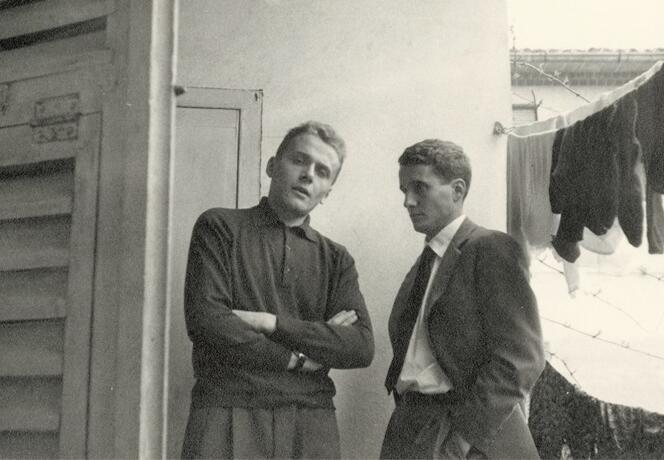THE “WORLD’S” OPINION – NOT TO BE MISSED
As Marco Bellocchio’s new film is released in France, Pick upthe distributor Ad vitam offered its documentary, previously unreleased in theaters, to cinemas that wished it. Marx can wait, which dates from 2021. Great idea, the film is magnificent. It is part of a more secret part of Marco Bellocchio’s considerable work, which could be described as a family diary. A sort of counterpoint to a work of fiction lastingly inspired, also, by the history of his own family, under the ambiguous and fantastical regime of love and hatred, nostalgia and revolt. After Sorelle (2006), about his sisters, and Sorelle May (2010), about his daughter, Marx can wait evokes the figure of the filmmaker’s twin brother, Camillo, who committed suicide in 1968, at the age of 29.
Bellocchio, fifty years later, takes advantage of a family reunion, one of the last he feels he will be able to film given the age of his protagonists, to let the camera roll. There are the siblings there – Piergiorgio, the great intellectual, Alberto, the writer, Marialuisa, Letizia – as well as Marco’s two children, Elena and Piergiorgio. It is about the house of Bobbio (in Emilia-Romagna), the epicenter of the family, the Mussolini puppet who frightens their childhood, the mother, pious and cold, the father, anticlerical, who died too young, the relationship between the brothers and sisters, of the mentally handicapped brother, Paulo, and more and more explicitly of Camillo, the missing brother, the great ghost of this family, its eternal remorse.
Open-air psychoanalysis
A sort of open-air psychoanalysis then takes place in the film, which the brothers’ keen intelligence and extreme sensitivity make both fascinating and moving. What emerges is the image of a child and then of a young man who has never managed to find his place. Crushed by two intellectual powers – Piergiorgio, literary critic and figure of the far left; Marco, a brilliant filmmaker – forgotten by his mother for Paulo, whose illness mobilized his concern, enrolled by his father in a technical course because of his academic results, Camillo searched, without ever discovering it, for the reason for his existence. A late found job (director of a sports club) and a woman who loved him were not enough to keep him alive.
The great courage of the film consists above all in detecting the blindness by which the family, despite the warning signs, finally let him see his end. Marco the first, the twin, the other himself, who probably responded nothing to the letter in which Camillo, like one throws a bottle into the sea, asked him to join him in his budding cinematographic career. Marco who, unable to question himself, imagines going through his own children, Elena and Piergiorgio, to share with them, in his tender and terrifying way, something of his regret and his shame at not having was able to respond at least with affection to his twin’s distress.
You have 20% of this article left to read. The rest is reserved for subscribers.
